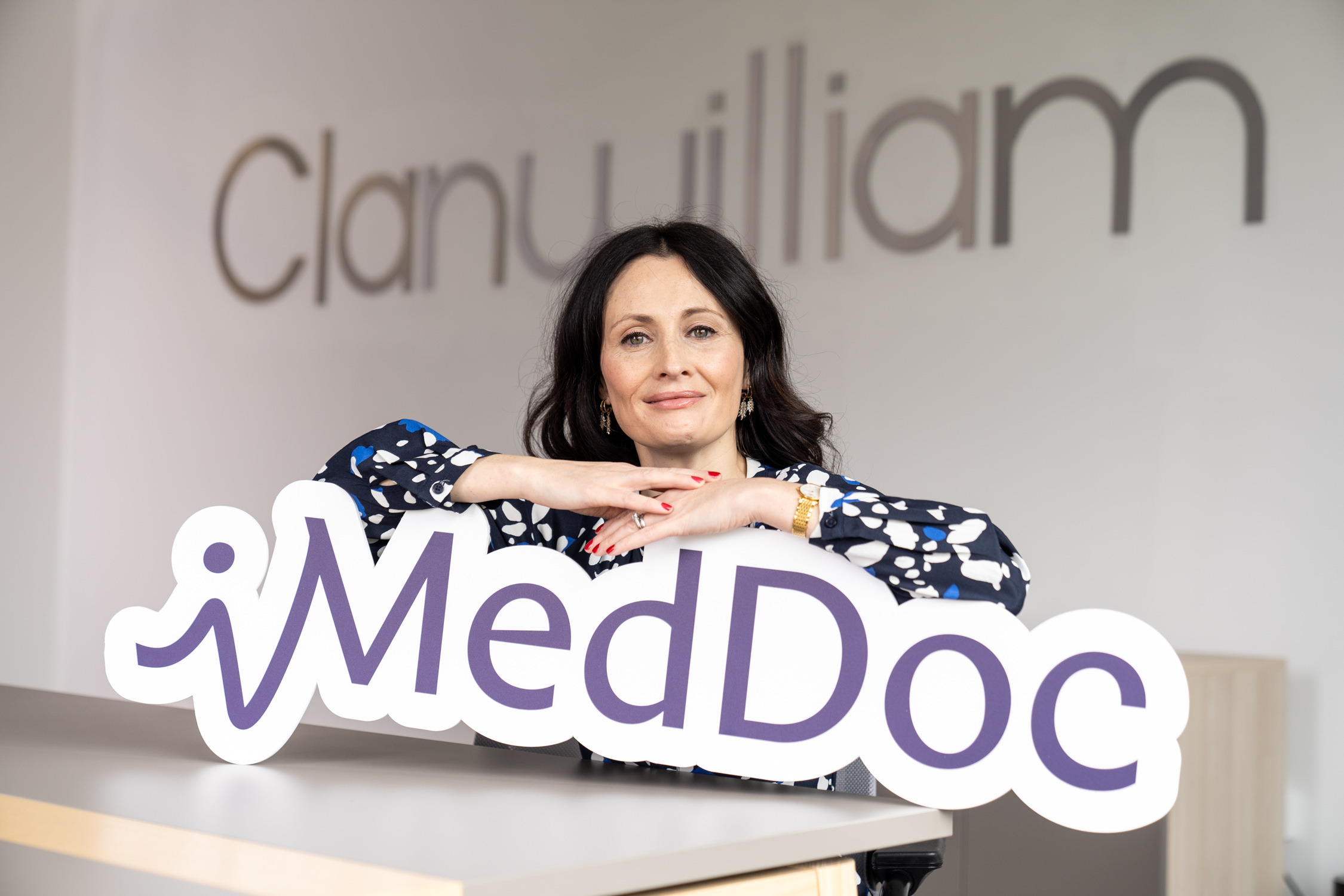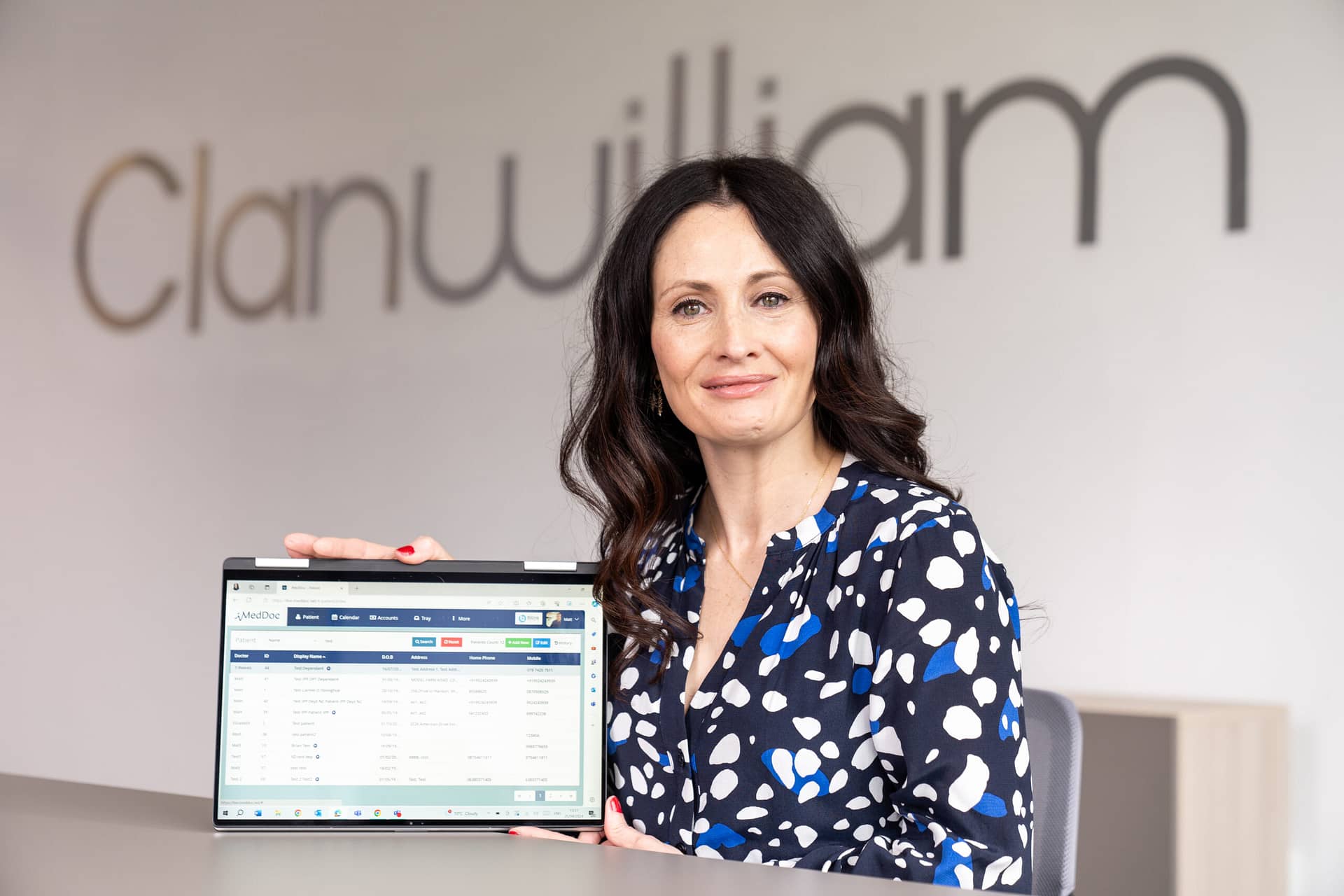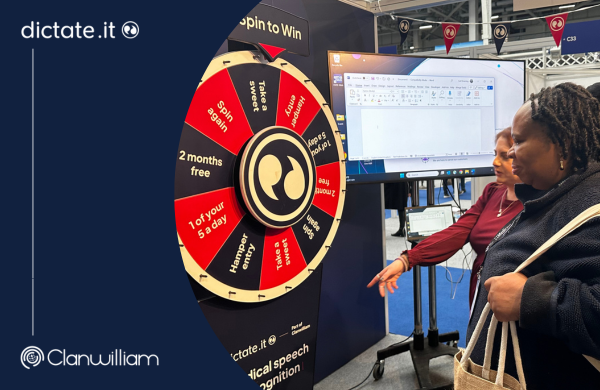Cloud-based, mobile-centric, electronic medical record iMedDoc joins Clanwilliam’s UK portfolio of practice management solutions, alongside DGL Practice Manager.
iMedDoc offers a modern, flexible option for clinics and consultants looking to develop a successful private practice, backed by a patient app.
Clanwilliam is launching iMedDoc, a cloud-based, mobile-centric, practice management solution for private practice, in the UK.
Clanwilliam is already a leading provider of software to the independent healthcare sector in the UK, as the supplier of market leader DGL Practice Manager, which was developed for large private practices, hospitals and hospital teams and currently serves over 3,000 customers.
The decision to add iMedDoc to its portfolio of UK practice management solutions is driven by the need for customer flexibility. With decades of experience in delivering technology to support private healthcare, Clanwilliam recognises that each private practice is unique and has preferred workflows. By offering a lighter and cloud based solution as part of an advanced product suite customers will have the opportunity to adopt the workflow that best mirrors their desired way of working.
Eileen Byrne, Managing Director at Clanwilliam Ireland said: “Private healthcare is developing rapidly in the UK, as patients look for a faster, more personalised service than an under-pressure NHS can deliver.
“We saw a requirement for a different kind of IT system to support the clinics and specialists that are looking to deliver that service, and iMedDoc fulfils that requirement.
“It brings the mobile technology that we have all adopted in our daily lives to bear on practice management tasks, so clinicians can save time and focus on what really matters to them – their patients.”
iMedDoc was developed in Ireland by an orthopaedic surgeon who wanted to support his own practice. Over 25-years, it has evolved into a modern, modular system that can handle the entire patient journey, from booking to billing.
As a cloud-based system, iMedDoc operates over a browser from anywhere with internet access, or it can be downloaded as an app from Apple or Android app stores.
Eileen continued: “iMedDoc is used by over 700 consultants in Ireland, so we know it can enable specialists to build an effective private practice.
“Its features work together to create effective workflows for clinicians of all kinds, whether they are already established or taking their first steps into the fast-moving world of private practice.”
iMedDoc also comes with a patient app, so patients can manage their own booking, complete questionnaires and hold consultations by video link.
To reduce the time and administration associated with billing, its accounts module integrates commercial accounts systems with Billink, a remote payment solution for healthcare that makes it easy for patients to settle bills by phone or text
Clanwilliam has invested circa £500,000 in adapting iMedDoc for the UK market, making sure that it meets the specific requirements, including integration with the clearing system, Healthcode.
A robust development roadmap is in place for the next two years, starting with an aesthetics module that is scheduled for launch this winter. Among other features, the module will enable clinicians to annotate images, so they can safely deliver cosmetic treatments.
Byrne concluded: “Clanwilliam is a global healthcare technology and services company with more than three decades of experience of helping healthcare organisations and individuals to deliver safe, efficient, and high-quality care to patients.
“The decision to bring iMedDoc to the UK is a great example of our commitment to transfer proven technology from one country to another and to invest in innovation to open up new services.
“We look forward to working with clinics and clinicians who want to use iMedDoc to advance independent healthcare in the UK, and to grow their practices by better serving their patients.”














 stopped the centre from overspending its Treasury limits, and large trusts are reporting significant deficits.
stopped the centre from overspending its Treasury limits, and large trusts are reporting significant deficits.